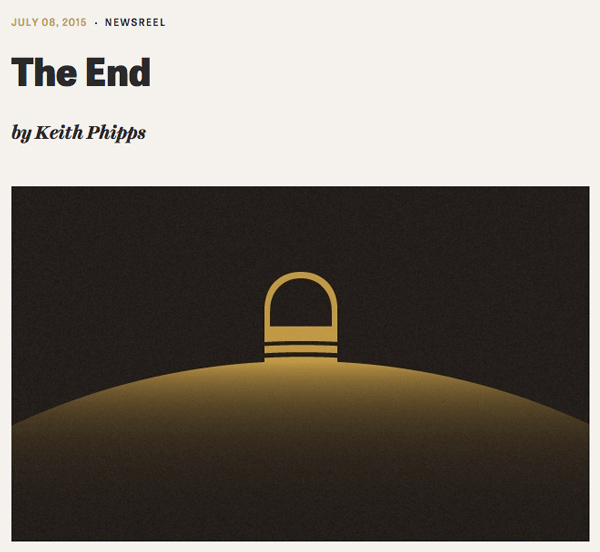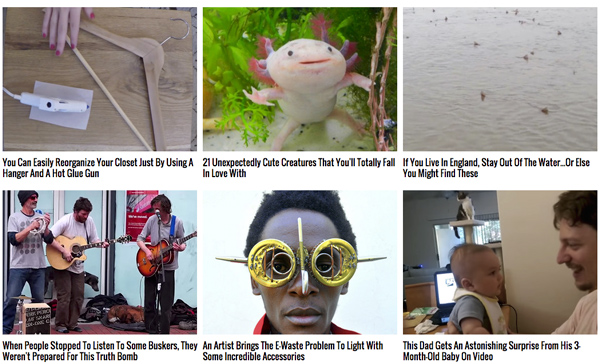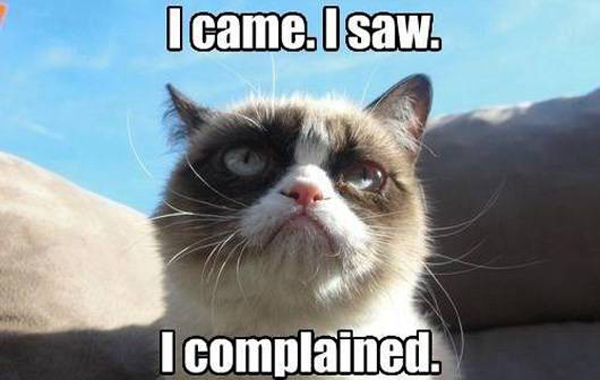ViralNova was just acquired for $100 million - and your click paid for it

For some of us, the Facebook newsfeed is an awful thing. You wake up and log on only to be met by headlines like What He Did With A Normal Swing Set Will Leave You Speechless and These 31 Completely Useless Facts Are Guaranteed to Make You More Interesting.
While I have no objection to being more interesting - especially without needing to involve alcohol - my problem is that I know what news looks like and neither of these headings is it.
Clickbait is now officially an epidemic, one even Facebook recognises - the site has tried to change its algorithm to keep meaningless fillers and viral froth out, but it always creeps right back in.
And with every click it generates, it marks the demise of another website that sets out to do something meaningful, or at least qualitative, rather than appeal to the lowest common denominator in each of us.
Take ViralNova and The Dissolve; the former, master of all-things-clickbait, the latter a Pitchfork-spinoff film criticism site with reviews, commentary and critique. A couple of weeks ago, ViralNova was acquired for $100 million dollars by Zealot Networks - and around the same time The Dissolve ceased operations and, literally 'dissolved' with a blogpost titled 'The End'.

Both The Dissolve and ViralNova started operations sometime in mid-2013. But only one has come out alive and well in mid-2015. That says a lot.
Your click is someone's salary
The headlines at the top of this story were from ViralNova's homepage - which even has a category called OMG, just in case you hadn't got the drift from the words ViralNova.
Contrast them with some from The Dissolve: The American Sniper Controversy Proves Film Critics Matter and It's Time to Stop Freaking out About Movies We Haven't Seen.
Which one gets your click?
Fighting the tide
Right from the outset, The Dissolve was a beacon of hope in the increasingly cynical world of film coverage; always taking an angle removed from what the press releases wanted you to believe. It had a tone - one that was accessible, compelling yet opinionated.
Which begs the question: is the highbrow internet always fated to be beaten by lowbrow internet?
The answer unfortunately seems to be yes: not only is clickbait easier to sell, its lucrativeness has created a whole new industry around its creation.
Say hello to content farms, the hubs where all those eminently shareable but fundamentally value-less pieces of 'content' that populate your Facebook feed and Whatsapp forwards come from.
And they sell well: the DailyMail recently acquired EliteDaily for about $50 million; Mic raised tens of millions in funding and rejected a Twitter bid to buy it; while Upworthy and Distractify have become the backbone of Facebook newsfeeds.
If you click a cute cat meme on the internet, know that you're paying for the next cat meme to be produced
Like most demand-supply equations, it's a fairly simple one: what gets clicked on more gets produced more. If most of us living on the internet click a cat meme when it shows up, well - let's then not blame the 'internet' for its cat obsession.
The problem is that the more resources we divert to clickbait, the less anyone puts money behind the more valuable stuff. It's telling that both The Dissolve and ViralNova started operations in mid-2013 - but only one has made it past mid-2015 alive.
'What Do You Do For Money Honey?'
The problem with quality is that it's not quantifiable, which means it's not easily monetisable. 'Viral' content, on the other hand, has one single metric on which it is judged: the eminently quantifiable world of likes, clicks and shares. So ViralNova studied and then hacked the hell out of the system with its 'and you won't believe what happens next' curiosity-gap headlines.
No prizes for guessing which one gets shoved in front of Facebook users oftener.

Their farm may produce a deep well of (eminently) forgettable content, but that doesn't mean there's no science behind it: that $100 million valuation depends heavily on an intensely-customised content management system (CMS) called Nova and a battery of analytical tools to find out what's going viral.
Nova even has the ability to test two different headlines at the exact same time to see which does better. That headline you know will lead to some utterly meaningless article that you nonetheless feel compelled to click on? There's a data-churning app for that.
It only takes two
While quality 'content' takes a major infusion of resources - trained teams, journalists, photographers, copy editors, editors and more, each of which is an expensive resource - ViralNova managed to be a one-man startup and two-member team for much of their run.
As aggregators rather than creators, founder Scott DeLong and two freelance writers together grew their site to the size and scale of Buzzfeed - about 100 million monthly readers - without having any full-time staff or raising any money from outside investors.
Even now, the company only employs 24, and it is a few content farmers' jobs to sift through the day's memes from other more or less identical sites, only to shove them in front of millions of 'likers' who lap it all up thirstily.
Virality, once a mysterious feature of the growing internet, has more or less been figured out. Puppies, cats, babies, heroes, redemption stories - there is a method to the inanity.

That's exactly what new buyers Zealot Networks have paid for: the well-oiled content producing farm is well on track to generate $35 million this year.
It's all about Mortal Kombat
In a theory called the 'Dozen Doughnuts', writer Steven Levy argues that people would actually want to see the intelligent, smart stuff if there weren't so much clickbait (ie: doughnuts) everywhere.
"For lots of us, the Facebook News Feed is a never ending delivery of info-doughnutsƒ - empty calories of celebrity misdeeds, snuggling animals of different species, and quizzes that guess where you're from (what, you don't know? But we take the tests!)," he writes.
Unfortunately, the highbrow internet - the nutritious carrots of the internet, to use the opposite of Levy's doughnut analogy - is based on the idea that there is a consumer for well-written thinkpieces, longform writing and podcasts online.
Except virtually no site seems to have found them in the quantities that make it financially viable to give them what they want with the aggression ViralNova shows its clickbait.
Until some clever chef comes up with a way to make carrots as sexy as doughnuts, let's face it: our Facebook feed is going to be full of empty calories.







![BJP's Kapil Mishra recreates Shankar Mahadevan’s ‘Breathless’ song to highlight Delhi pollution [WATCH] BJP's Kapil Mishra recreates Shankar Mahadevan’s ‘Breathless’ song to highlight Delhi pollution [WATCH]](https://images.catchnews.com/upload/2022/11/03/kapil-mishra_240884_300x172.png)

![Anupam Kher shares pictures of his toned body on 67th birthday [MUST SEE] Anupam Kher shares pictures of his toned body on 67th birthday [MUST SEE]](https://images.catchnews.com/upload/2022/03/07/Anupam_kher_231145_300x172.jpg)






